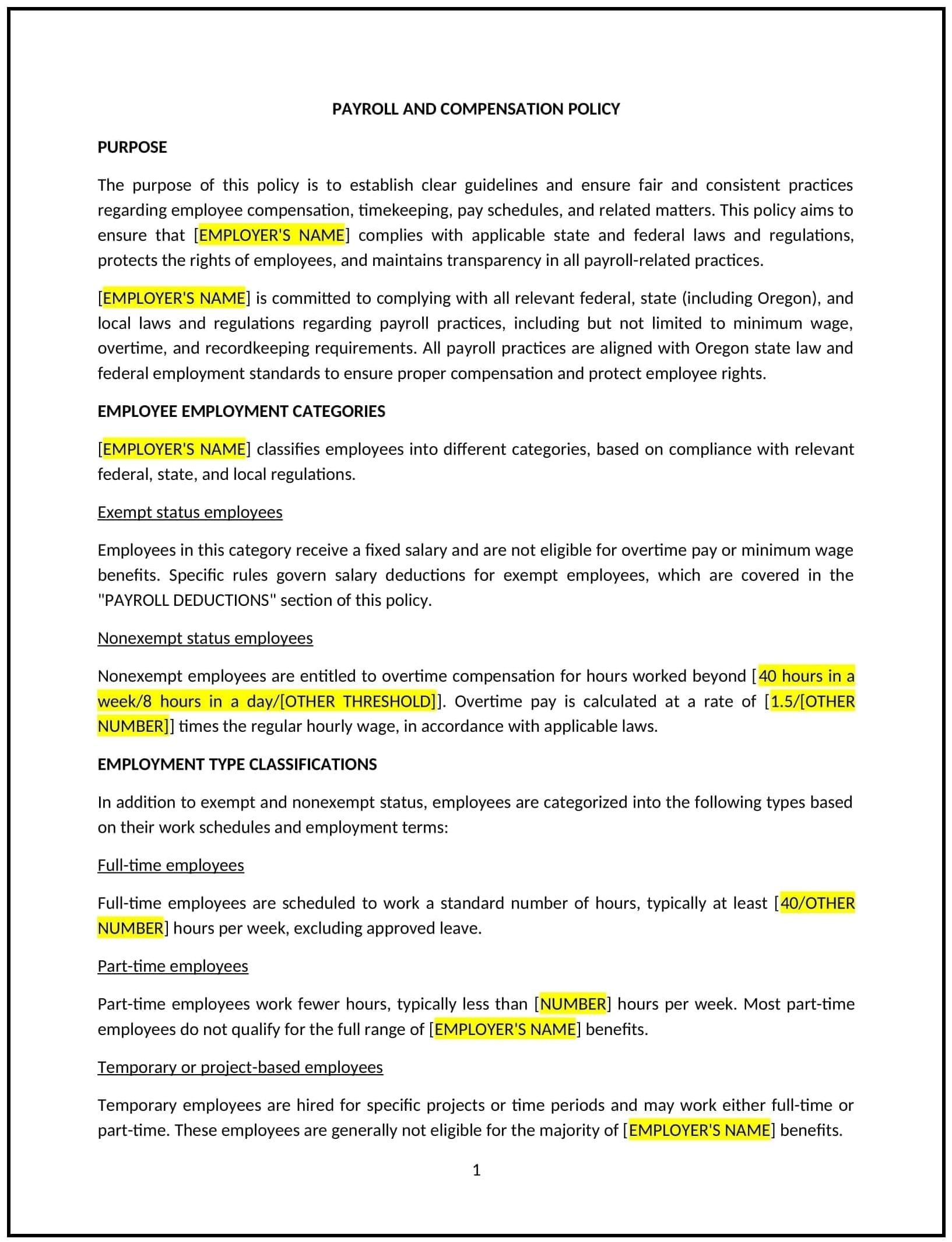Payroll and compensation policy (Oregon): Free template
Got contracts to review? While you're here for policies, let Cobrief make contract review effortless—start your free review now.

Customize this template for free
Payroll and compensation policy (Oregon)
This payroll and compensation policy is designed to help Oregon businesses manage employee pay, benefits, and deductions in compliance with state and federal laws. It outlines procedures for payroll processing, overtime, and wage adjustments.
By adopting this policy, businesses can ensure accurate and timely payments, maintain compliance, and promote transparency in compensation practices.
How to use this payroll and compensation policy (Oregon)
- Define pay periods: Specify the frequency of payroll processing, such as bi-weekly or monthly.
- Outline overtime rules: Clarify eligibility for overtime pay and the rate of compensation.
- Address wage adjustments: Establish procedures for raises, bonuses, and other adjustments to employee pay.
- Set deduction guidelines: Specify allowable deductions, such as taxes, benefits, or garnishments.
- Train payroll staff: Educate payroll teams on processing payments accurately and complying with laws.
- Review and update: Assess the policy annually to ensure it aligns with evolving state and federal regulations.
Benefits of using this payroll and compensation policy (Oregon)
This policy provides several advantages for Oregon businesses:
- Ensures accuracy: Promotes timely and accurate payroll processing, reducing errors and disputes.
- Enhances compliance: Aligns with state and federal laws, such as the Fair Labor Standards Act (FLSA) and Oregon wage laws.
- Builds trust: Demonstrates transparency and fairness in compensation practices.
- Reduces legal risks: Minimizes the potential for penalties or lawsuits related to payroll errors.
- Supports employee satisfaction: Ensures employees are paid fairly and on time.
Tips for using this payroll and compensation policy (Oregon)
- Communicate clearly: Share the policy with employees and include it in the employee handbook.
- Provide training: Educate payroll staff on processing payments accurately and complying with laws.
- Monitor compliance: Regularly review payroll records to ensure adherence to the policy.
- Address issues promptly: Take corrective action if payroll errors or discrepancies are identified.
- Update regularly: Revise the policy as needed to reflect changes in state or federal regulations.